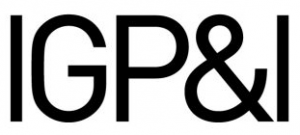Gard assureds may face demands from regulators, authorities and claimants for data and documents following a casualty. Serious casualties will likely result in litigation or administrative action with exposure for large fines or civil judgments. The assured will require effective assistance of a lawyer to provide legal advice and, to provide it, the lawyer will require full and honest communication with his or her client. Confidentiality of their communication is firmly established in common law. When the representation involves a corporation, we find a significant difference between American and English law.

Maintaining confidentiality for communications with your attorney - Comparing and contrasting American and English law
Written by
Kim Jefferies
,
Adrian Moylan
Published 07 February 2017
In our previous two Insights we asked American and English lawyers to explain the operation of America’s attorney-client privilege and England’s legal advice privilege as well as tips for maintaining confidentiality afforded by the privilege. In their comprehensive overviews, we learned that the confidentiality of written and oral communication between a client and lawyer made for the purpose of obtaining or providing legal advice is protected from disclosure. In comparing the American and English law, we conclude that an individual seeking legal advice would be entitled to the same protection for confidential communication with his or her attorney whether the advice is sought in London or New York.
Under American and English law, corporations can sue or be sued civilly and criminally. So what if the “client” needing legal advice is the corporation? In the corporate context, the extent of the privilege under American law and English law differs greatly. Under American law, the corporation itself is “the client”. Of course, corporations can only act through humans and with respect to seeking legal advice, it is the management of the corporation that instructs the lawyer. The lawyer collects information from employees, or even ex-employees, necessary to provide legal advice to the corporate client. In such a scenario, the lawyer’s notes of the interviews are privileged even though no employee of the corporation is considered a client. The privilege belongs to the corporate client and not the individuals interviewed.
Under English law the “client” consists of the key individual or individuals authorised to seek and receive legal advice from the lawyer. The legal advice privilege does not extend to all information provided to the lawyer by employees and former employees because these individuals are not the “client”. Thus, in the same scenario, privilege is maintained in the United States but not in England.
Click on this link for the comprehensive discussion of privilege under English law. Click here for the article discussing the American law. We thank our authors for their contributions and suggest our readers review the tips for maintaining privilege found at the conclusion of each article.
Questions or comments concerning this Gard Insight article can be e-mailed to the Gard Editorial Team. We are always happy to consider topics suggested by our readers. If you have any suggestion for future articles, please contact us.





